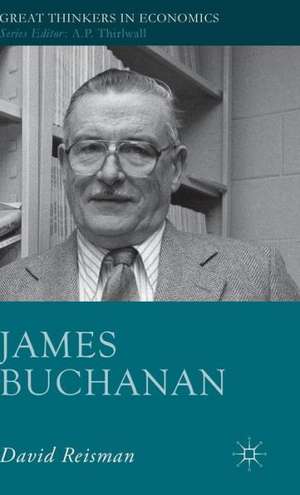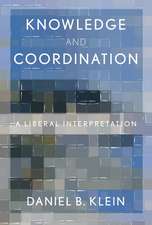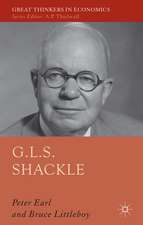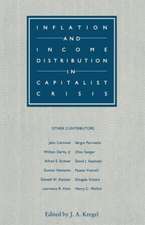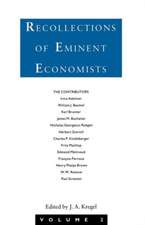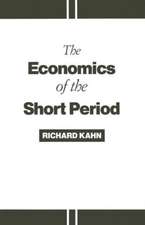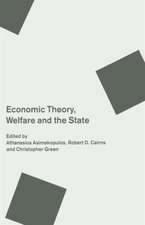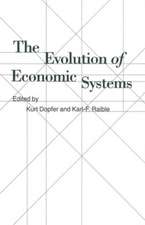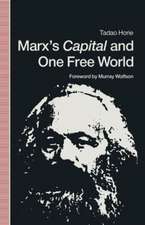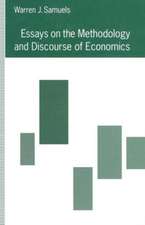James Buchanan: Great Thinkers in Economics
Autor D. Reismanen Limba Engleză Hardback – 8 apr 2015
| Toate formatele și edițiile | Preț | Express |
|---|---|---|
| Paperback (1) | 636.30 lei 43-57 zile | |
| Palgrave Macmillan UK – 2015 | 636.30 lei 43-57 zile | |
| Hardback (1) | 727.80 lei 43-57 zile | |
| Palgrave Macmillan UK – 8 apr 2015 | 727.80 lei 43-57 zile |
Din seria Great Thinkers in Economics
- 18%
 Preț: 738.06 lei
Preț: 738.06 lei - 15%
 Preț: 636.80 lei
Preț: 636.80 lei - 15%
 Preț: 639.25 lei
Preț: 639.25 lei - 15%
 Preț: 639.25 lei
Preț: 639.25 lei - 15%
 Preț: 641.71 lei
Preț: 641.71 lei - 15%
 Preț: 641.20 lei
Preț: 641.20 lei -
 Preț: 390.63 lei
Preț: 390.63 lei - 15%
 Preț: 640.88 lei
Preț: 640.88 lei - 15%
 Preț: 651.19 lei
Preț: 651.19 lei - 15%
 Preț: 641.20 lei
Preț: 641.20 lei -
 Preț: 385.62 lei
Preț: 385.62 lei - 15%
 Preț: 637.59 lei
Preț: 637.59 lei - 15%
 Preț: 637.59 lei
Preț: 637.59 lei - 18%
 Preț: 729.36 lei
Preț: 729.36 lei - 15%
 Preț: 701.06 lei
Preț: 701.06 lei - 15%
 Preț: 698.30 lei
Preț: 698.30 lei - 15%
 Preț: 709.09 lei
Preț: 709.09 lei - 15%
 Preț: 640.55 lei
Preț: 640.55 lei -
 Preț: 388.90 lei
Preț: 388.90 lei - 18%
 Preț: 724.63 lei
Preț: 724.63 lei - 18%
 Preț: 732.70 lei
Preț: 732.70 lei - 15%
 Preț: 641.71 lei
Preț: 641.71 lei -
 Preț: 388.13 lei
Preț: 388.13 lei - 18%
 Preț: 727.97 lei
Preț: 727.97 lei - 15%
 Preț: 643.99 lei
Preț: 643.99 lei - 15%
 Preț: 648.24 lei
Preț: 648.24 lei - 15%
 Preț: 642.51 lei
Preț: 642.51 lei
Preț: 727.80 lei
Preț vechi: 887.55 lei
-18% Nou
Puncte Express: 1092
Preț estimativ în valută:
139.31€ • 151.37$ • 117.09£
139.31€ • 151.37$ • 117.09£
Carte tipărită la comandă
Livrare economică 21 aprilie-05 mai
Preluare comenzi: 021 569.72.76
Specificații
ISBN-13: 9781137427175
ISBN-10: 1137427175
Pagini: 251
Ilustrații: VII, 251 p.
Dimensiuni: 140 x 216 x 16 mm
Greutate: 0.45 kg
Ediția:2015
Editura: Palgrave Macmillan UK
Colecția Palgrave Macmillan
Seria Great Thinkers in Economics
Locul publicării:London, United Kingdom
ISBN-10: 1137427175
Pagini: 251
Ilustrații: VII, 251 p.
Dimensiuni: 140 x 216 x 16 mm
Greutate: 0.45 kg
Ediția:2015
Editura: Palgrave Macmillan UK
Colecția Palgrave Macmillan
Seria Great Thinkers in Economics
Locul publicării:London, United Kingdom
Cuprins
1. Introduction 2. Individuals and Agreements 2.1. The Individual 2.2. The Truth Judgment 2.3. Truth as Consensus 2.4. Economic Psychology 2.5. The Agreement 3. Rules without Regulators 3.1. The Social Individual 3.2. Non-Conflictual Conventions 3.3. Group Size: Large and Small 3.4. Work and Saving: Ethics as an External Benefit 4. Social Justice: Buchanan and Rawls 4.1. Justice as Consent 4.2. Buchanan and Rawls 4.3. The First Principle 4.4. The Second Principle 5. Social Evolution: Buchanan and Hayek 5.1. Market as Discovery 5.2. Conventions and Heuristics 5.3. The Visible Hand 6. Acts and Rules 6.1. Conservatives and Libertarians 6.2. Buchanan as an Anarchist 6.3. When East went West 7. Constitutional Rules 7.1. The Calculus of Consent 7.2. The Original Contract 7.3. Unanimity of Consent 7.4. Unanimity and Unknowledge 7.5. Collective Regulation: The Citizen and the State 7.6. Updating the Constitution 8. Operational Rules 8.1. Percentages and Externalities 8.2. The Tyranny of the Majority 8.3. Pareto Optimality 9. The Microeconomics of Consent 9.1. Vote-Selling 9.2. Vote-Trading 10. Moral Anarchy 10.1. Things Fall Apart 10.2. External Costs 10.3. Politicians 10.4. Bureaucrats 11. Keynesian Ethics 11.1. Democracy without Consultation 11.2. The Politics of the Deficit 11.3. Debt: Objective and Subjective 11.4. Inflation 11.5. Macroeconomic Management 12. Ethics as Unknowledge 12.1. Agreement is All 12.2. The Fear Motive 13. Economics as Unknowledge 13.1. The Mission of the Economist 13.2. The Subjectivist Heritage 13.3. Buchanan as a Subjectivist 14. Macroeconomic Policy 14.1. Fiscal Policy 14.2. Monetary Policy 15. Microeconomic Policy 15.1. The Minimal State 15.2. The Protective State 15.3. The Productive State 15.4. The Transfer State 16. Buchanan's Legacy
Recenzii
“Anyone interested in the ideas of James Buchanan will find this book worthwhile. … The book has extensive citations to Buchanan’s work, making it easy for readers who want to follow up on particular themes. … it does offer many biographical insights that provide interesting background on the development of some of the concepts that are found throughout Buchanan’s work. … Reisman has done an admirable job of organizing Buchanan’s ideas and presenting his outlook on social organization.” (Randall G. Holcombe, Public Choice, Vol. 164, 2015)
Notă biografică
David Reisman is Professor of Economics at the Nanyang Technological University, Singapore, and Professor Emeritus of Economics at the University of Surrey, UK.
